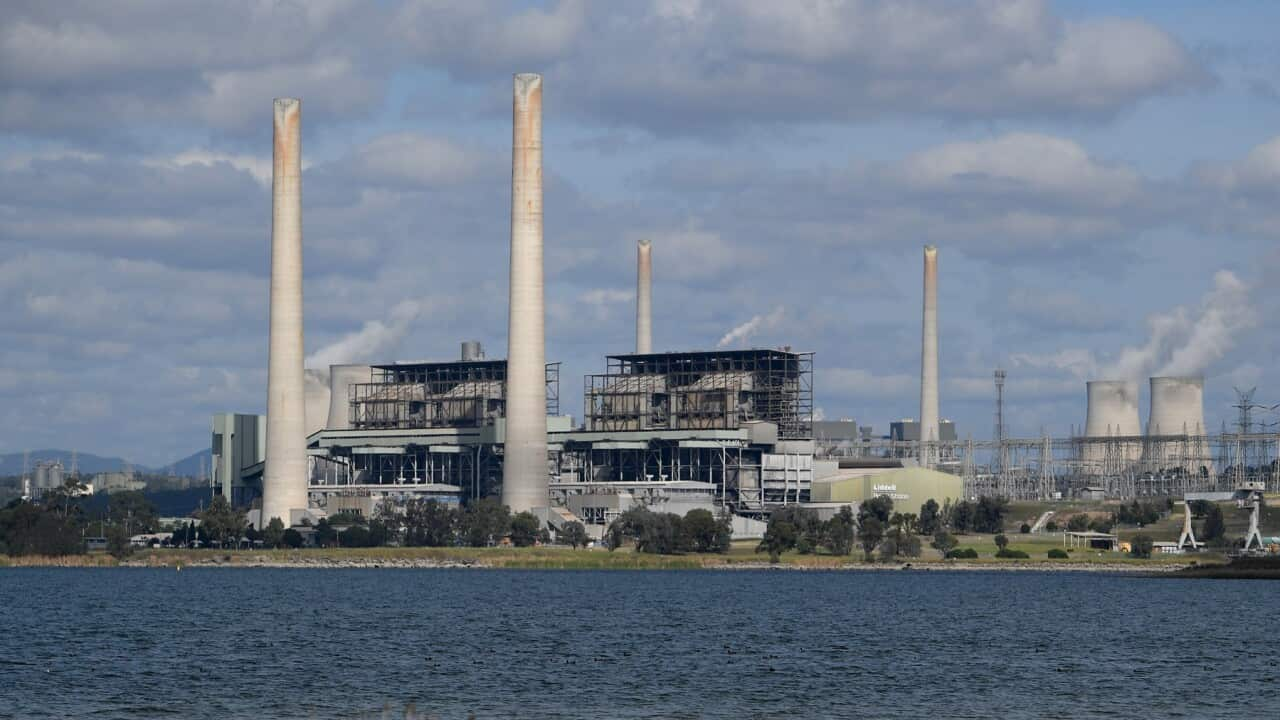Critics of Prime Minister Scott Morrison’s push for a gas-led recovery to the coronavirus pandemic have warned the energy plan is a missed opportunity to ramp up the nation's transition to a clean-energy future.
Mr Morrison , declaring Australia needs more investment in gas supplies to push down power prices.
The government’s focus on gas has been rejected by environmentalists and progressive organisations who are instead calling for a 'green recovery' to the crisis that would invest in renewable technologies.
Opponents have argued gas is neither a sustainable investment nor a cleaner alternative to coal against the backdrop of global climate change challenges.
Gavan McFadzean, from the Australian Conservation Foundation, said he is concerned the proposal risks undermining Australia’s transition to renewable energy and will further increase the nation's emissions.
“Gas is a fossil fuel whose emissions are in many cases as bad as coal and in some cases even worse,” he told SBS News.
“Gas gets us no closer to a safe planet when it comes to acting on climate change and now it is not needed.” Mr Morrison has argued the push for gas will improve energy affordability amid the nation’s economic recession, drive down power prices, assist in job creation and support families and businesses.
Mr Morrison has argued the push for gas will improve energy affordability amid the nation’s economic recession, drive down power prices, assist in job creation and support families and businesses.

Prime Minister Scott Morrison at a press conference at Parliament House in Canberra. Source: AAP
The federal government wants to deliver 1,000 megawatts of new dispatchable energy to replace the loss of the Liddell power station before it closes down in 2023.
The prime minister is giving power giants seven months to come up with a plan to meet the demand before the government steps in.
The focus on dispatchable power - electricity generation that can be turned off and on when necessary - is aimed at meeting demand the government says can't yet be met by intermittent renewable technologies.
This includes promising to build a gas power plant in the NSW Hunter Valley if the private sector does not take action.
Richie Merzian, Climate & Energy Director at progressive think tank The Australia Institute, said the government should instead be focusing on further investment in renewable energy and storage capacity to reach this target.
“Gas is a fossil fuel and it is part of the problem, not part of the solution … (it) will only increase Australia's emissions,” he told SBS News.
“It's expensive, it's dirty and we don't need it.
"It doesn't make sense to replace one fossil fuel with another. They just all feed into the same climate crisis.”
On Tuesday, Mr Morrison said the government remained committed to investing in renewable energy, emphasising that Australia would meet its climate change commitments.
The government’s target through the Paris Agreement is to reduce emissions by at least 26 per cent by 2030 on 2005 levels.
“We remain committed to it and we will meet it in a canter,” Mr Morrison said.
The government's COVID committee - advising on the nation’s recovery to the pandemic – had suggested it consider underwriting new investment in gas pipelines as one of its recommendations.
But the Climate Council’s Greg Bourne, a former BHP Australasia president, said the plan failed to show the vision required to more strongly pursue a clean-energy future.
“It’s being sold as a sort of COVID-led recovery of the economy … but really it’s just the wrong idea altogether,” he said.
“The crisis we face going forward is the climate crisis … to try and bring more gas when you’re trying to de-carbonise the economy is the wrong thing.”
Earlier this year, the government outlined a technology roadmap it said would ensure a "non-ideological" approach to investment in energy technologies.
But opponents have warned the government is going against this approach by singling out gas investment in the nation's recovery.
"The government's plan is certainly not technology-neutral. It has picked its winner - unfortunately it's the loser," Mr Merzian said.
Greens Leader Adam Bandt has also seized on opposition to the government’s proposal, calling his plan a recipe for a “gas-fuelled climate collapse”.
Labor’s energy opposition spokesperson Mark Butler said the announcement was heavy on spin and light on substance, arguing it is not ambitious enough.
With additional reporting by AAP.













